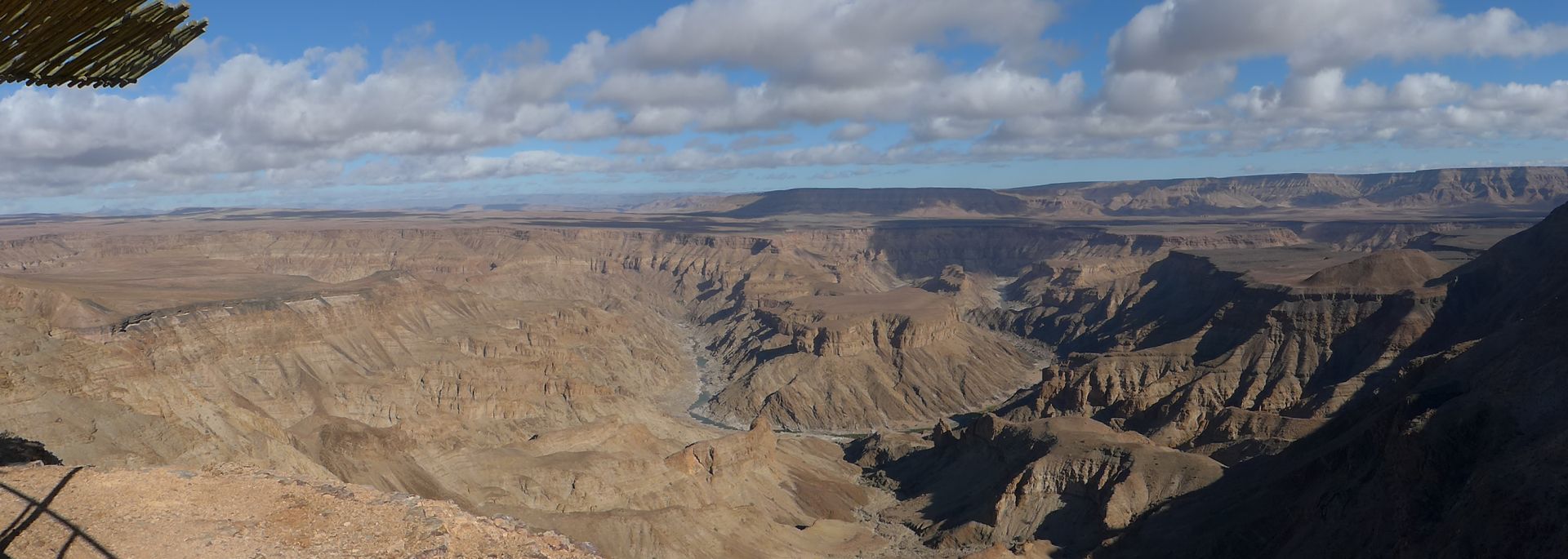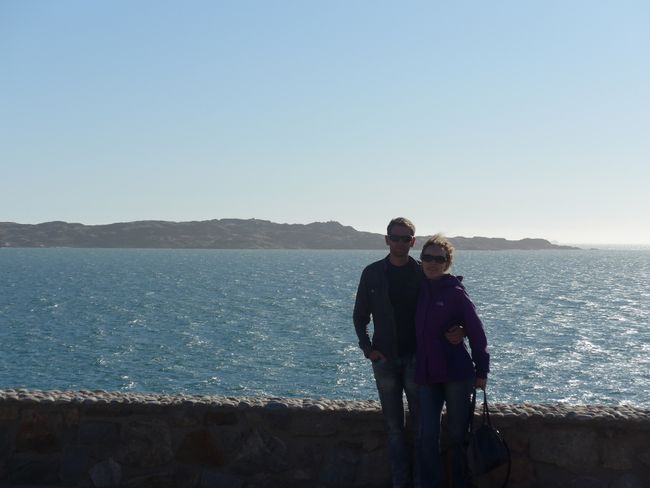Holnis - exploring Schleswig-Holstein
ޝާއިޢުކޮށްފައިވެއެވެ: 25.06.2020
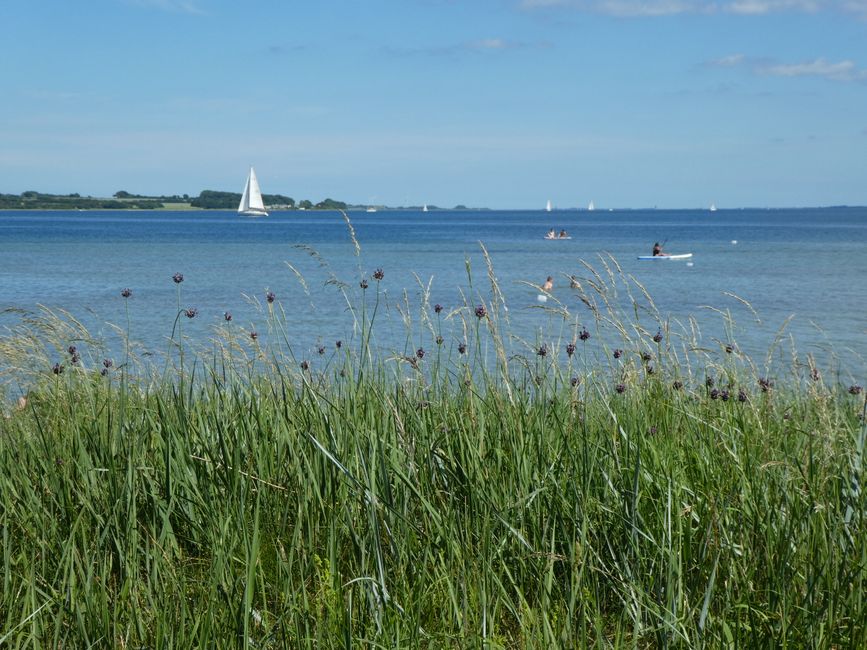
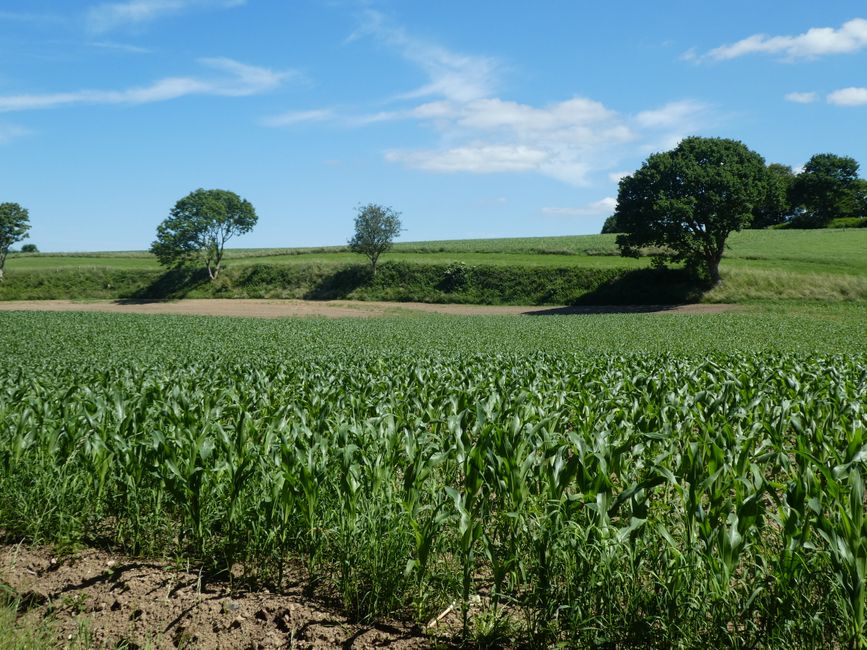
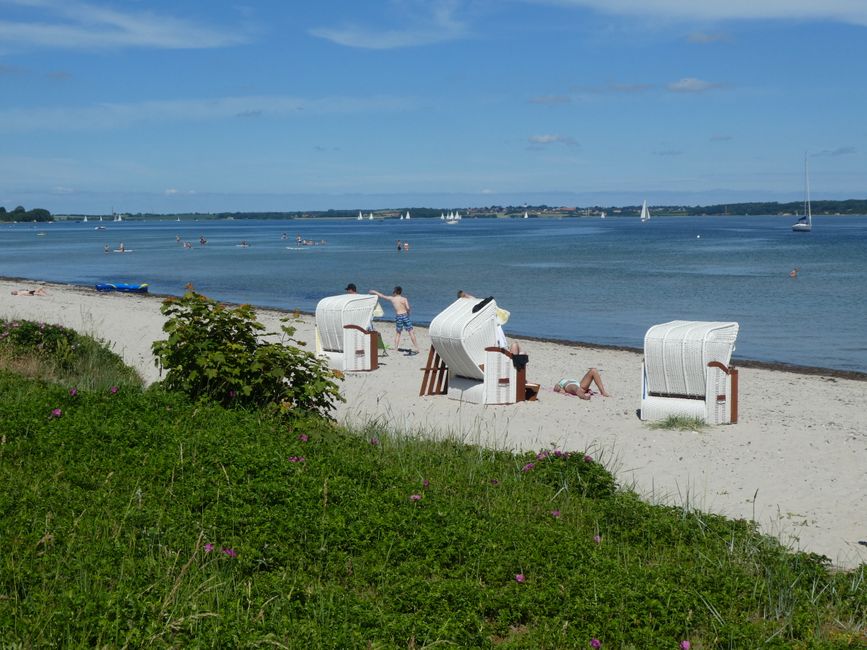


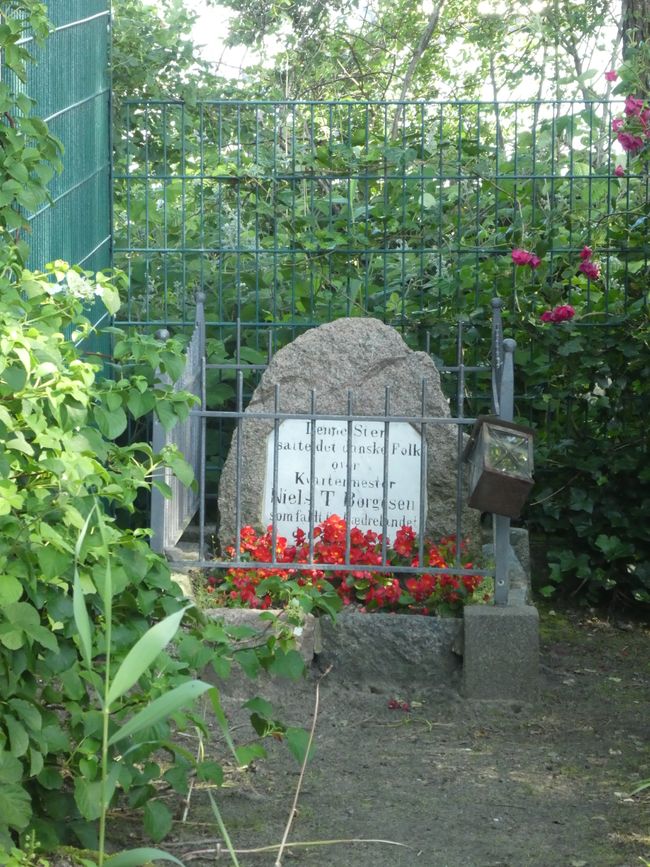
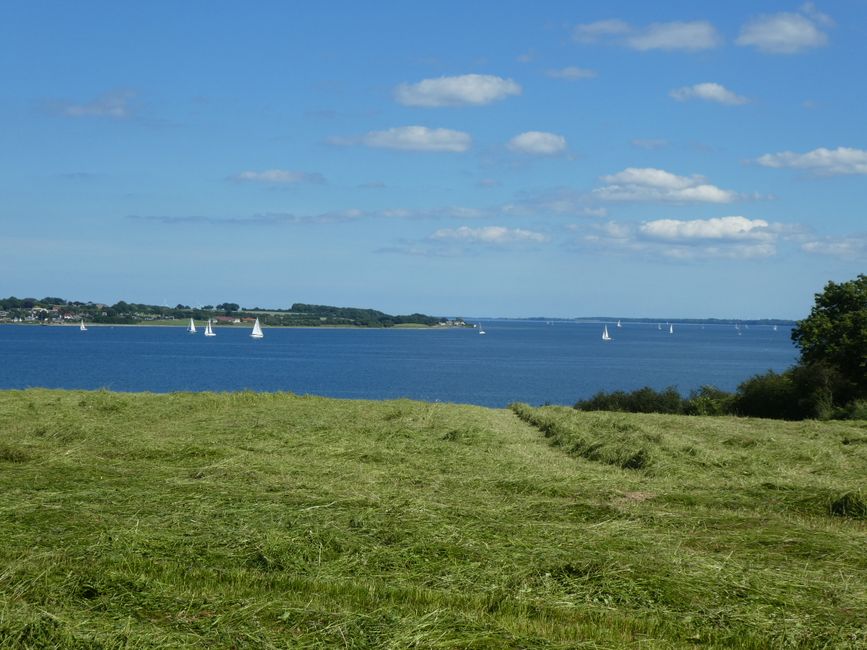
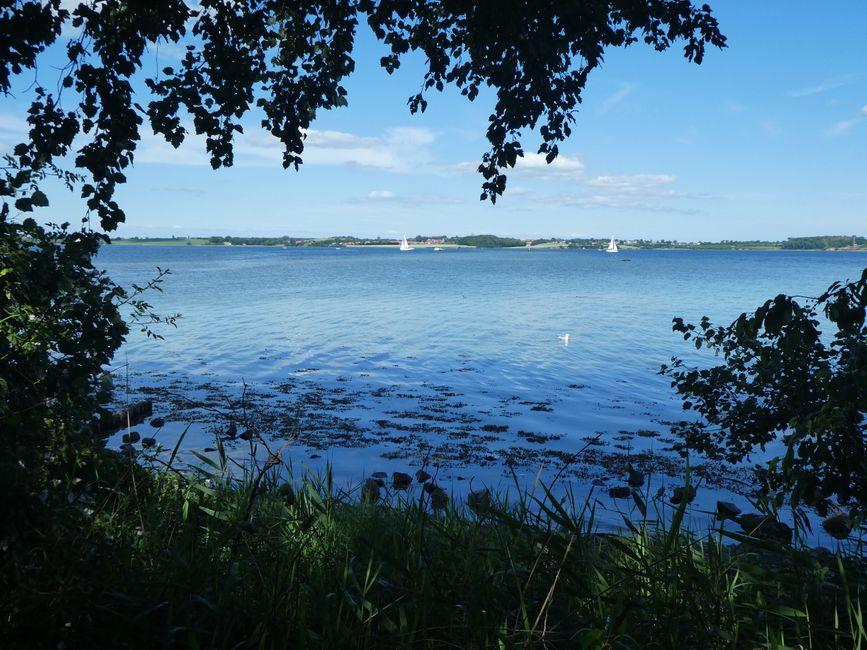
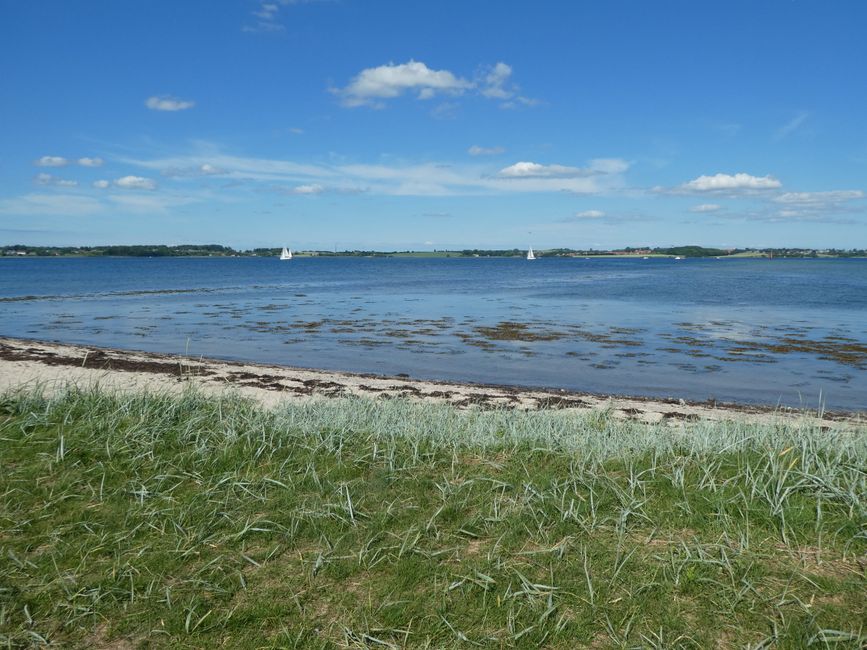
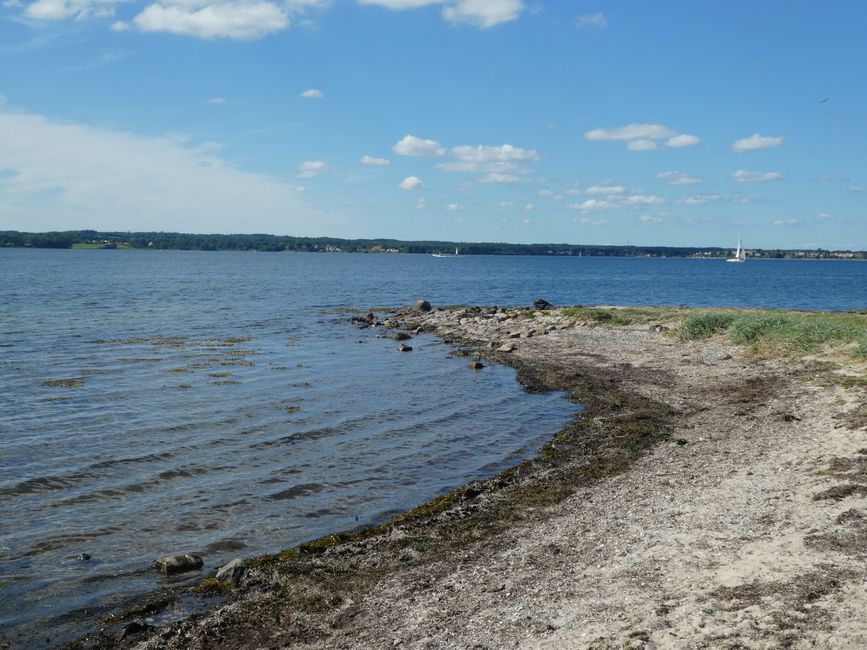
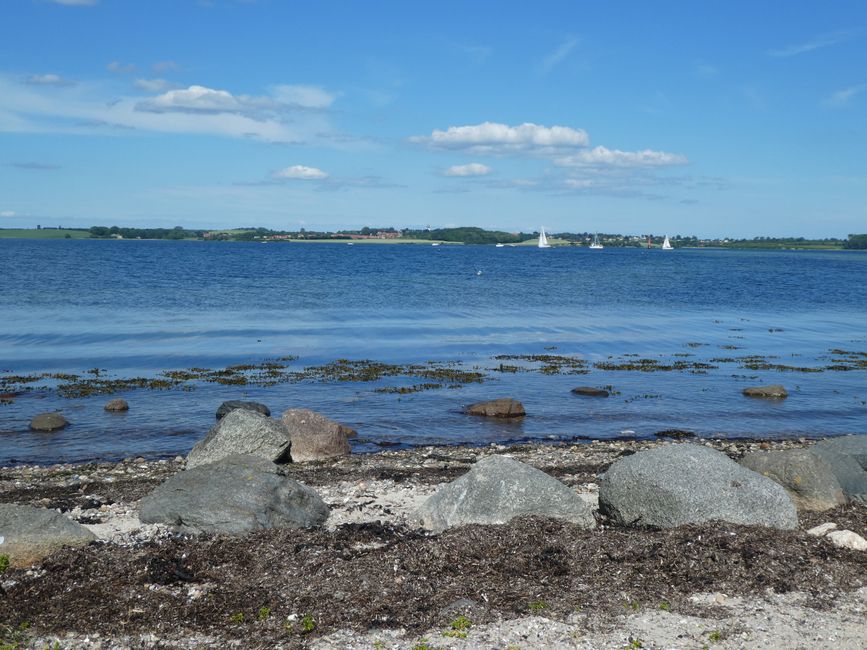
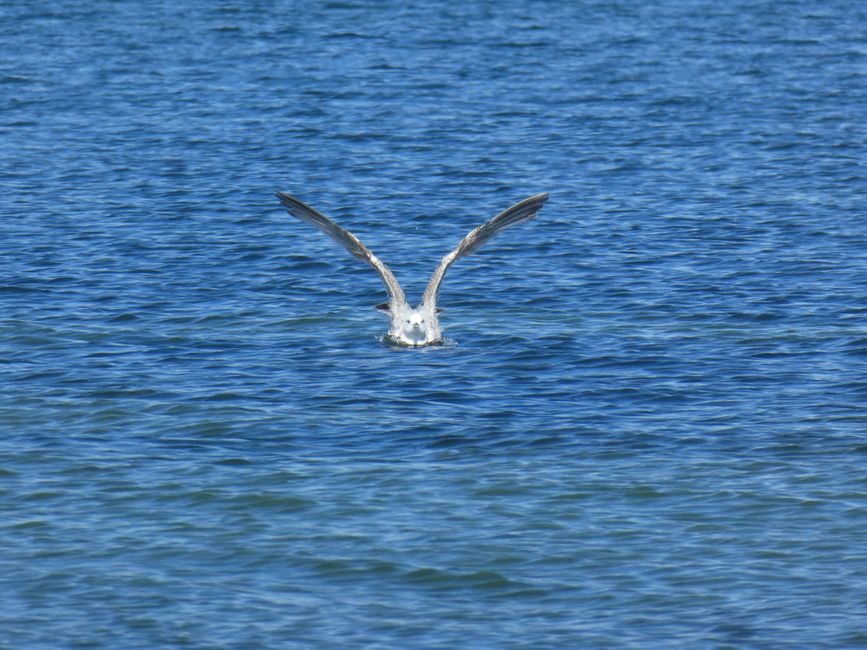
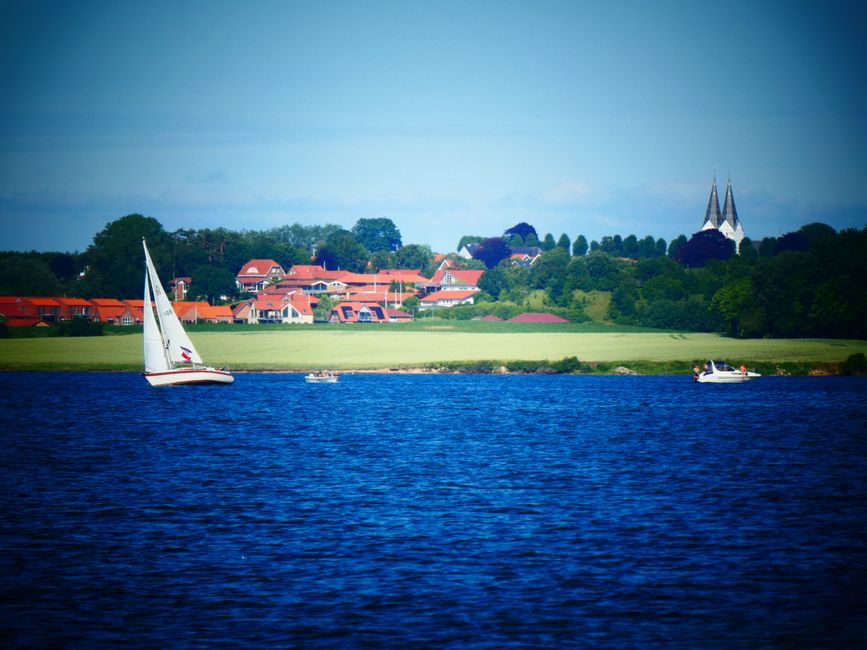
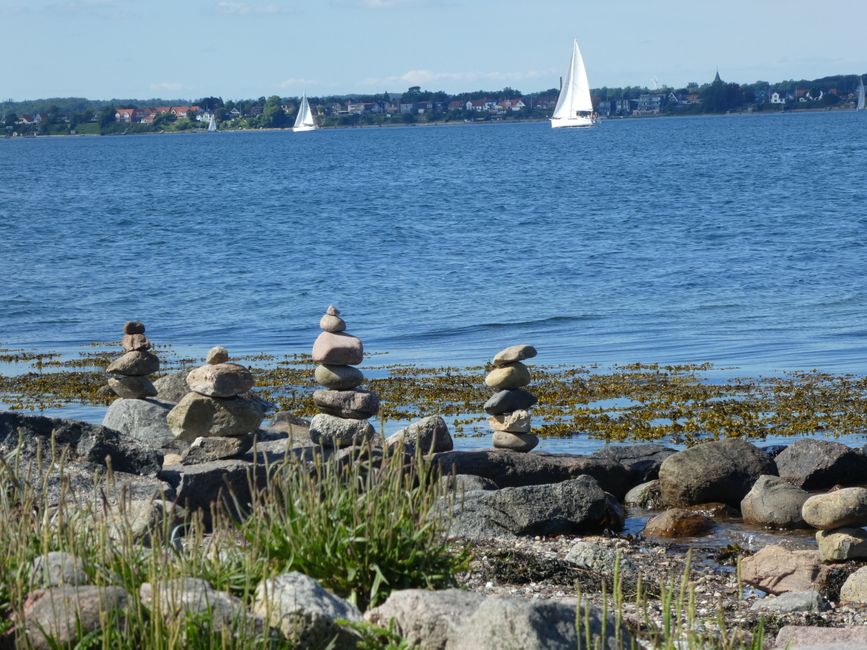
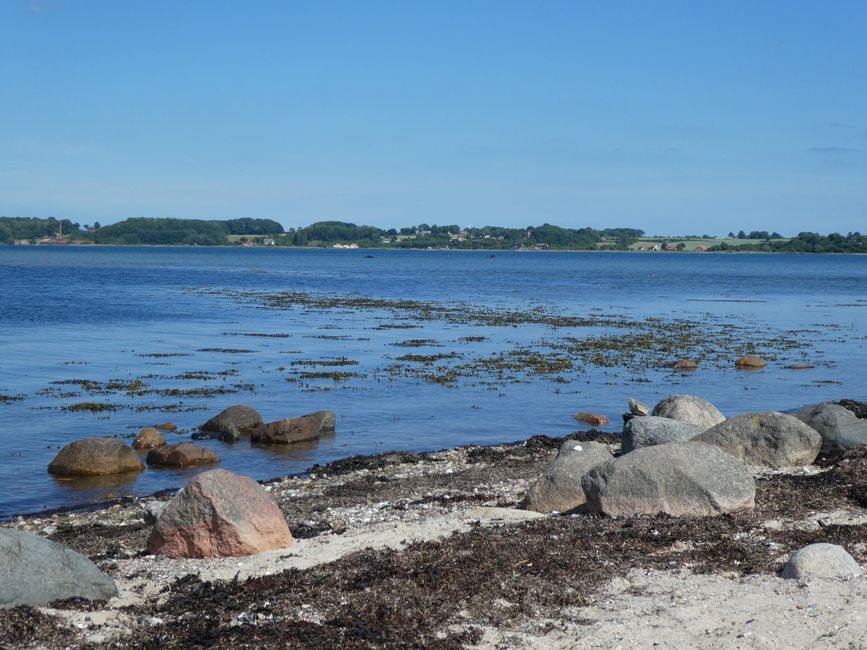
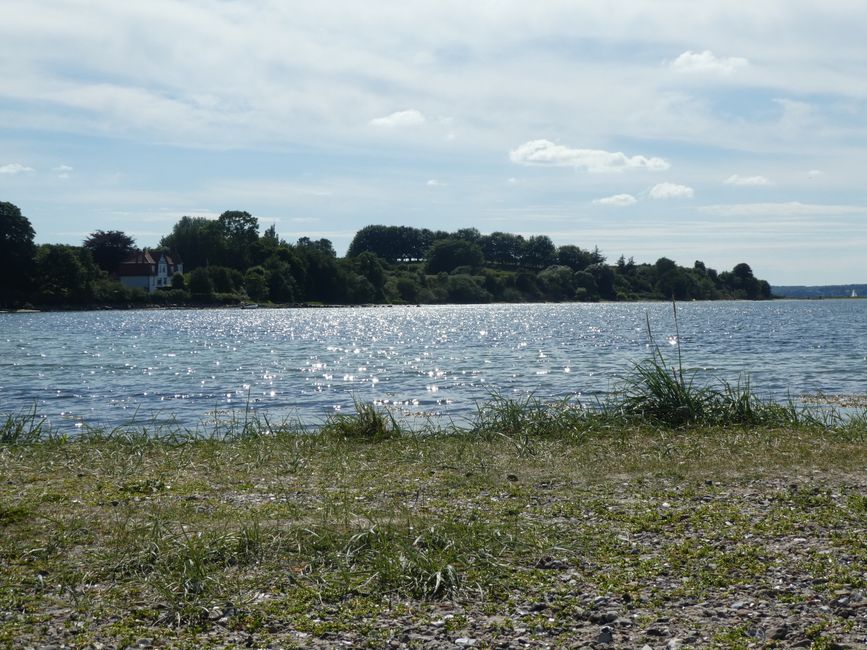
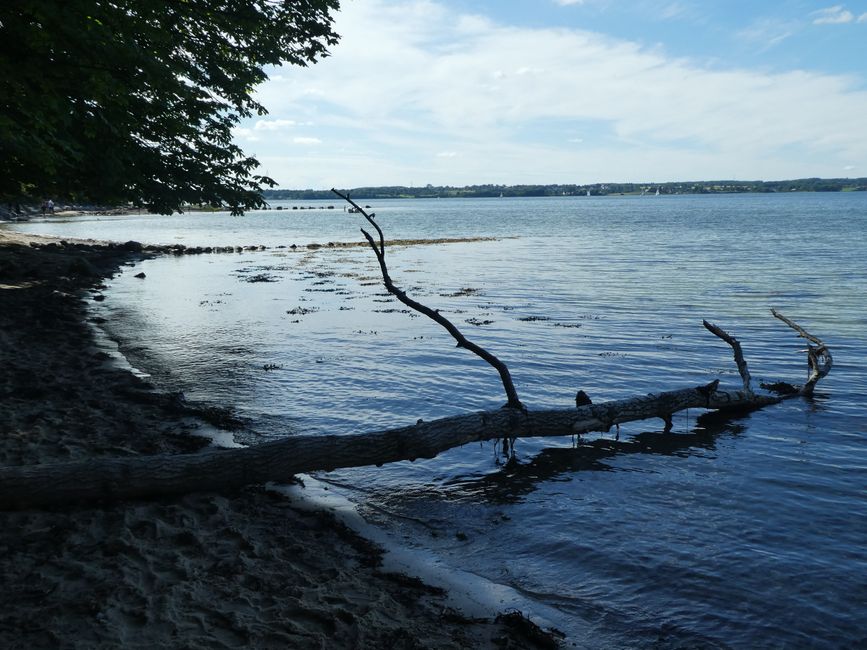
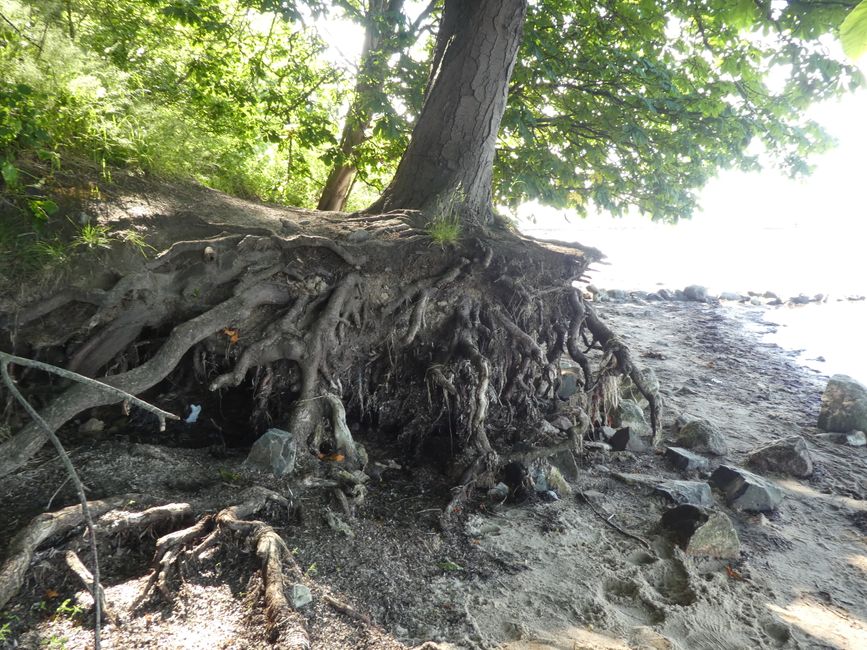
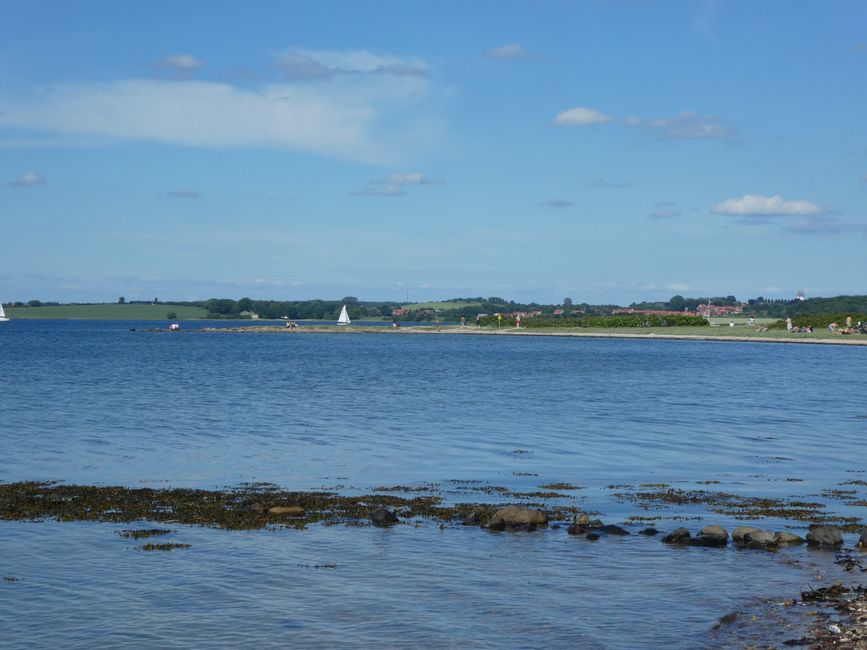
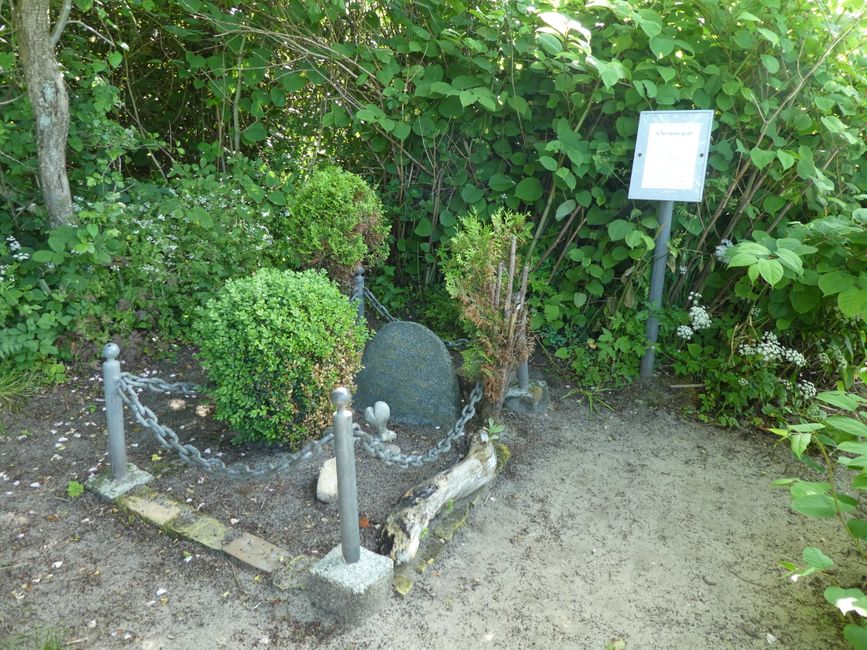
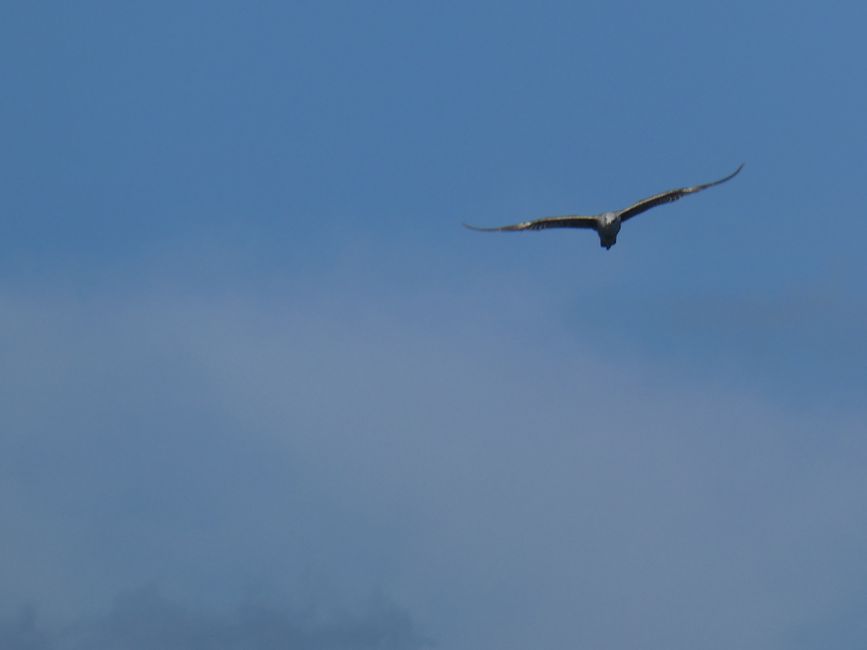
ނިއުސްލެޓަރ އަށް ސަބްސްކްރައިބް ކޮށްލައްވާ
In Holnis Drei, a beach in the north of Glucksburg city center, we started our little hike.
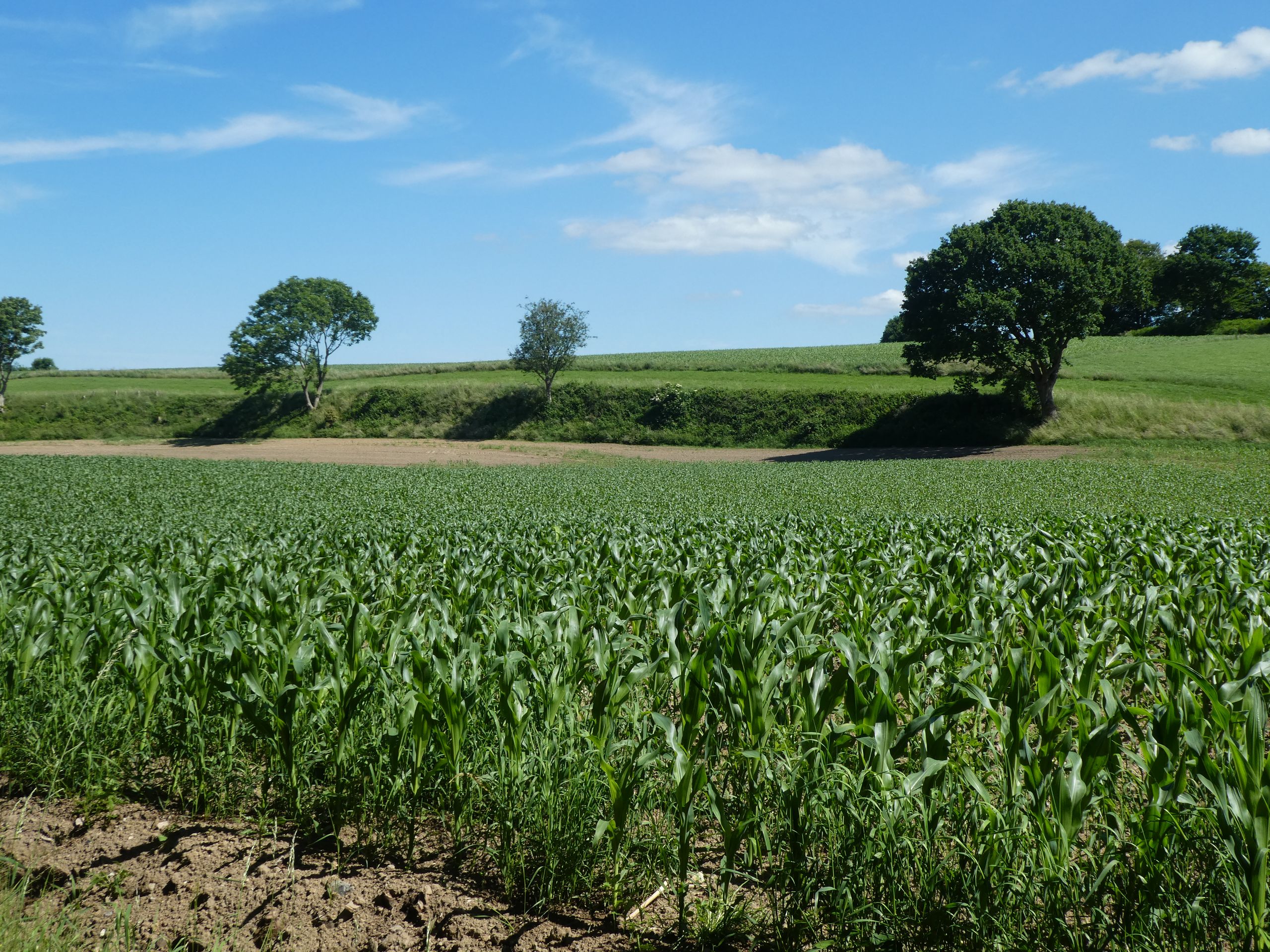
Initially, we followed the 'Theodor Fontane Path', which got its melodious name because the famous poet once sailed past here on a ship and looked at the mainland. However, he never set foot on this path.
Nevertheless, a memorial plaque at the 'Fahrhaus' restaurant reminds us of him. In his novel 'Unwiederbringlich', he even mentions Holnis.
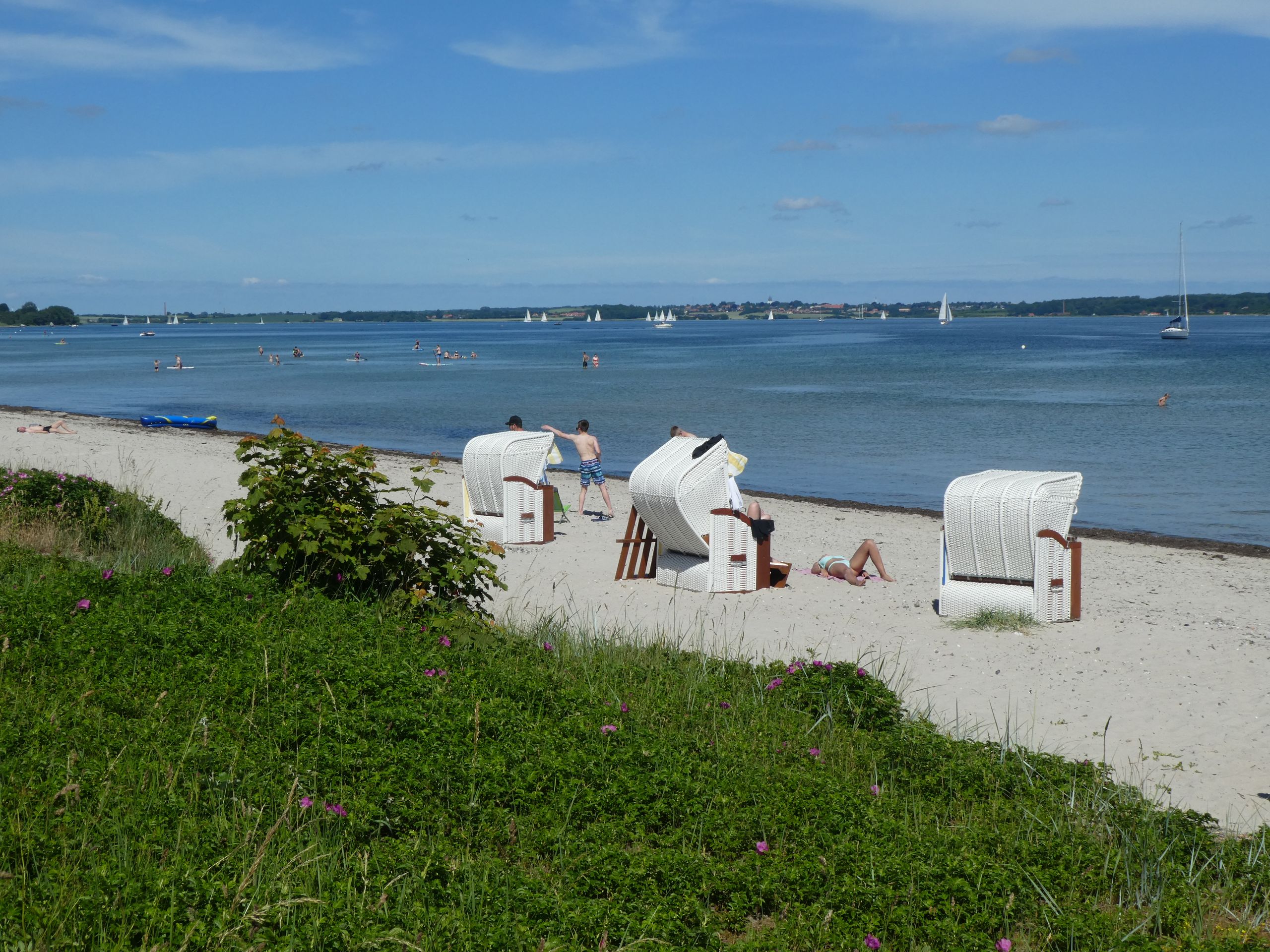
On our way north, we didn't encounter any famous writers, but numerous vacationers who were walking or cycling on the beach promenade.

Here, you can comfortably walk along the coast. Next to it is a relatively wide sandy beach, but you have to pay a tourist tax if you want to stay there.
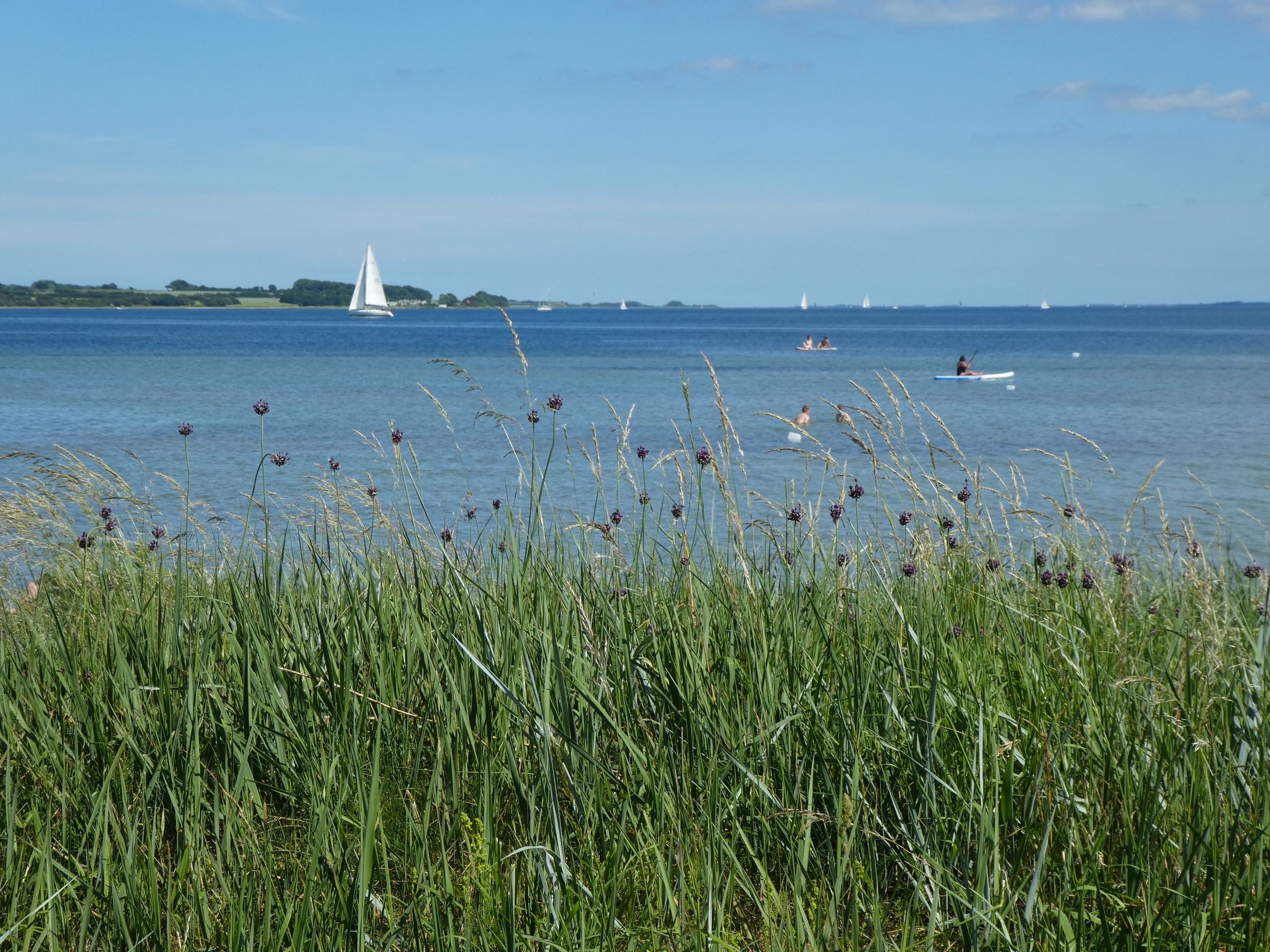
However, we didn't want to spend a day at the beach, but rather hike to the northernmost point on the German mainland. The path along the coast with a view of Denmark is very comfortable and also manageable by bicycle.
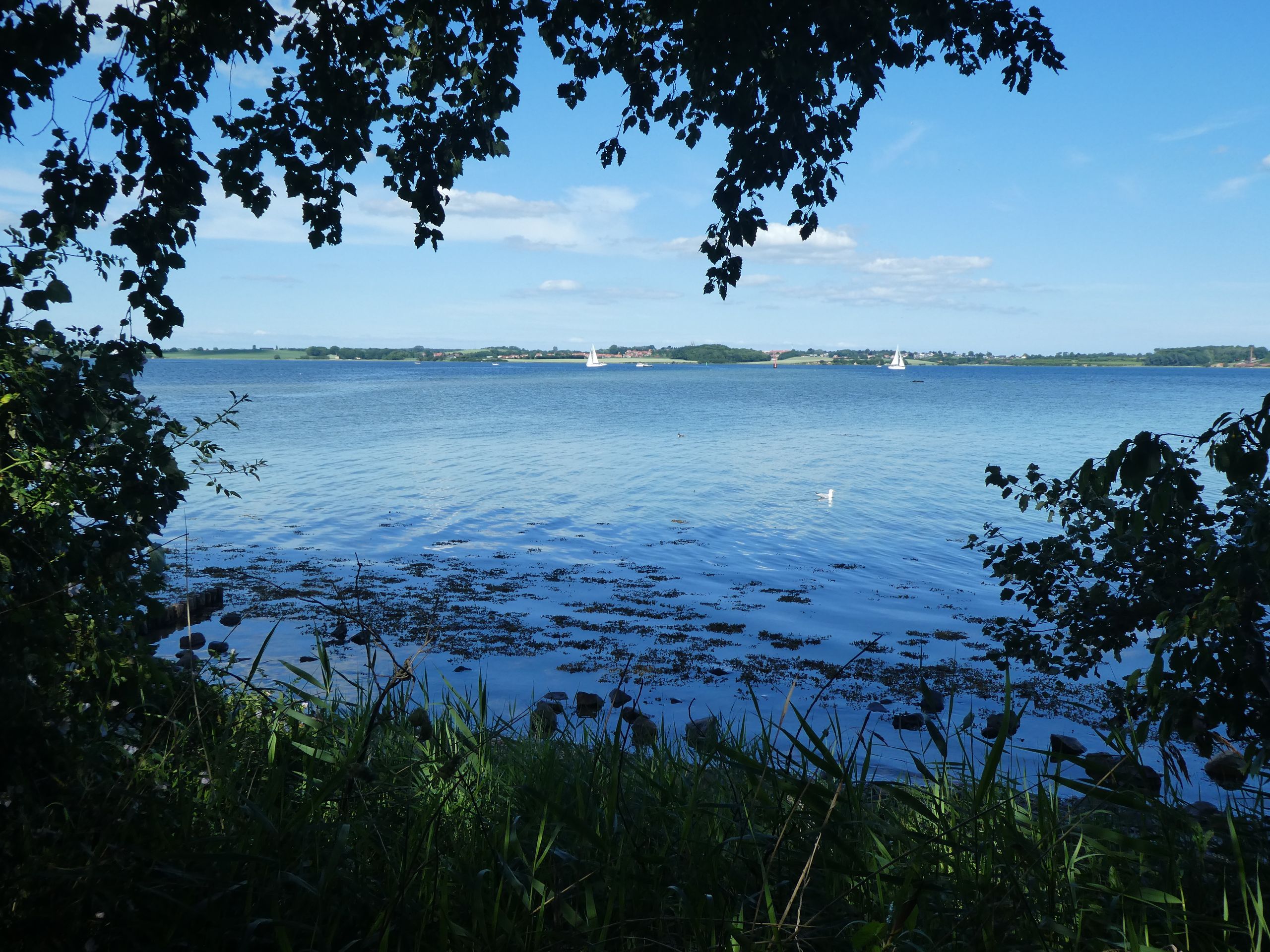
Only shortly before reaching the northernmost point, we had to switch from the bicycle to the footpath, as it leads along a densely overgrown path on the cliff coast.
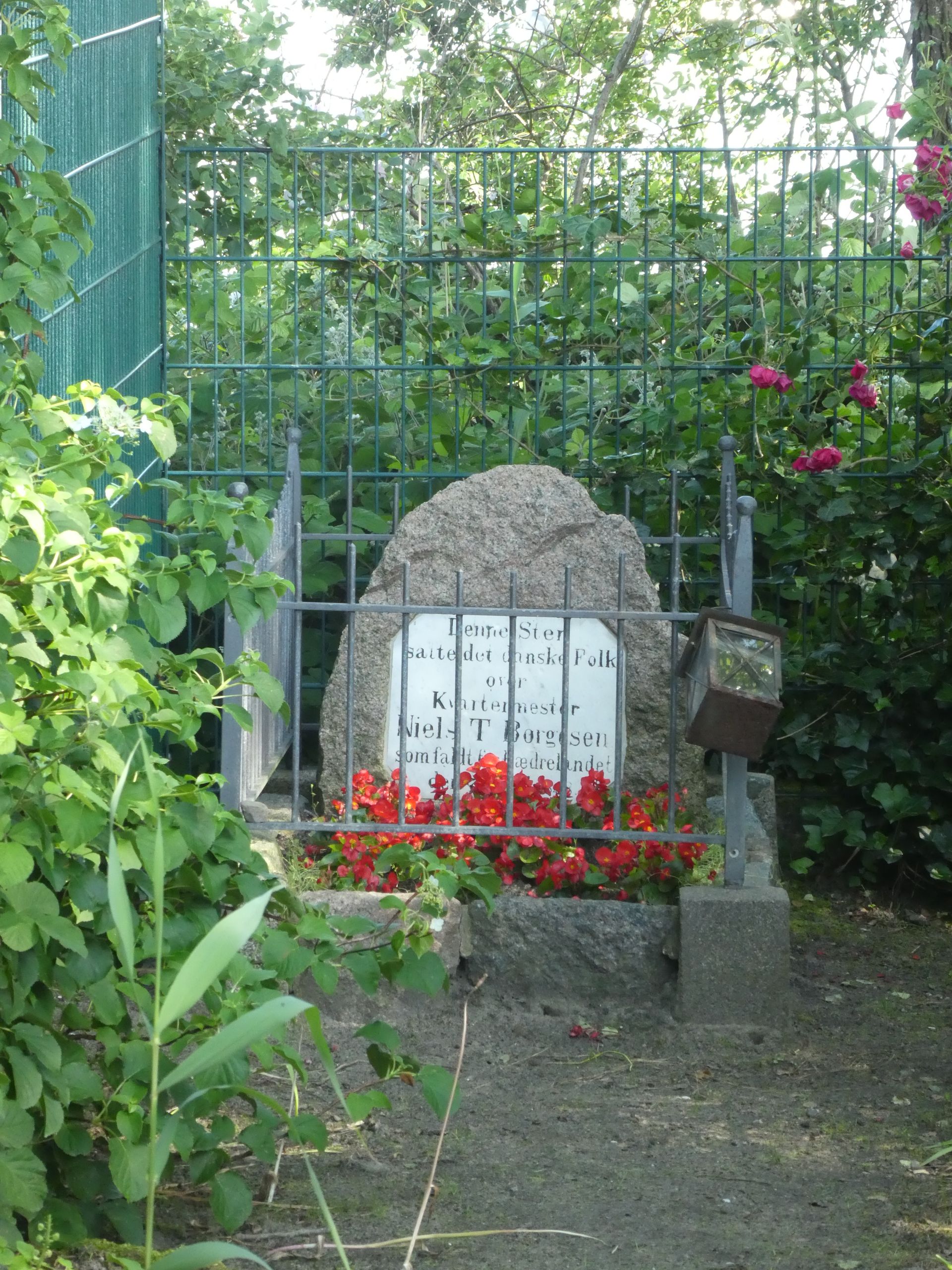
On the way, we also learned something about the German-Danish history: In 1848, there was a sea battle in which two Danish ships were bombarded from the land with glowing cannonballs. During the battle, the quartermaster of the 'Hekla' Niels T. Borgensen died. He was buried on the edge of today's hiking trail and received a memorial stone, which the Danish people, presumably in later times of peace, erected.
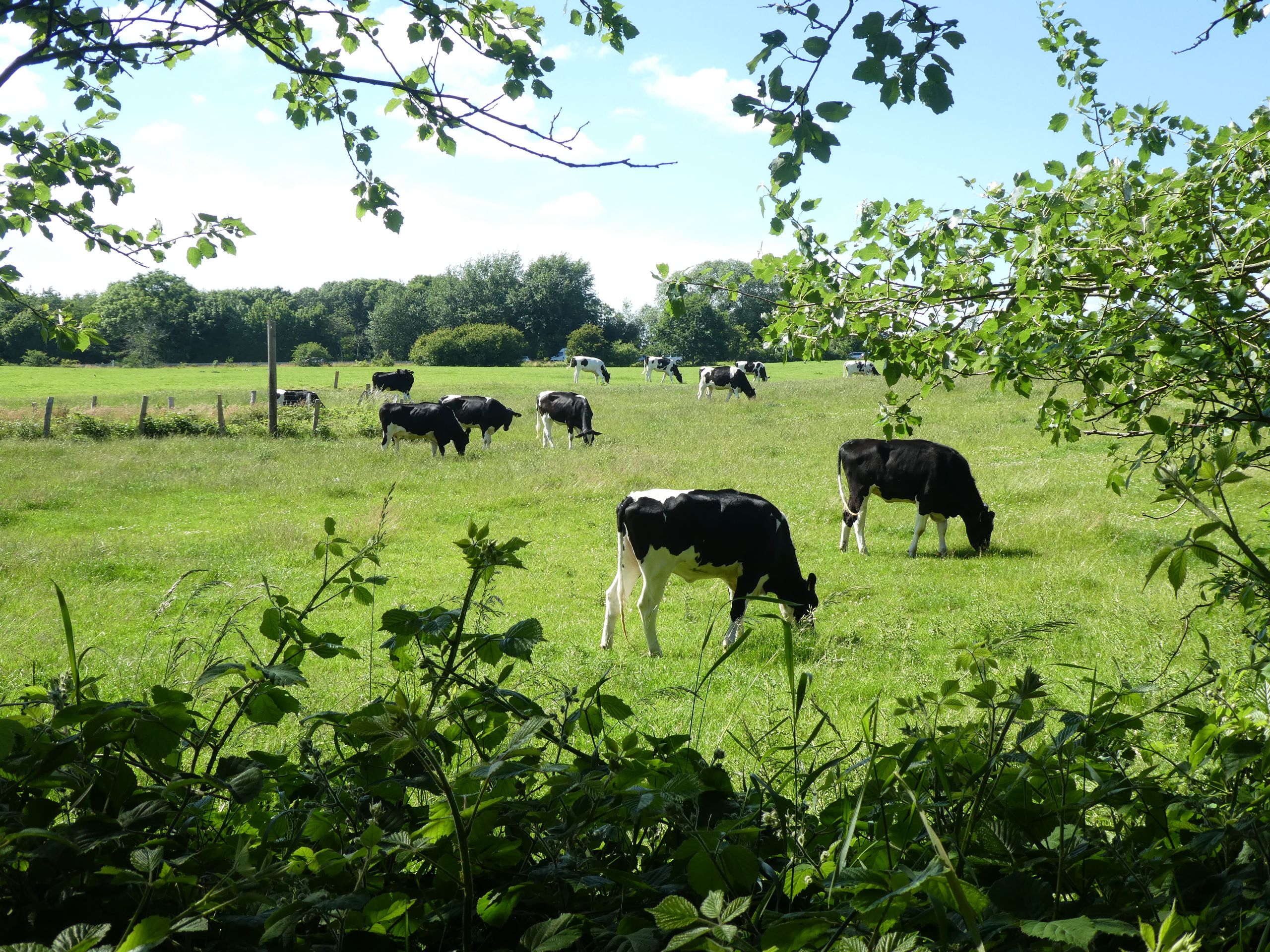
On the way, we also saw some happy North German cows, who were allowed to graze with an enviable view and were not bothered by the passing tourists.
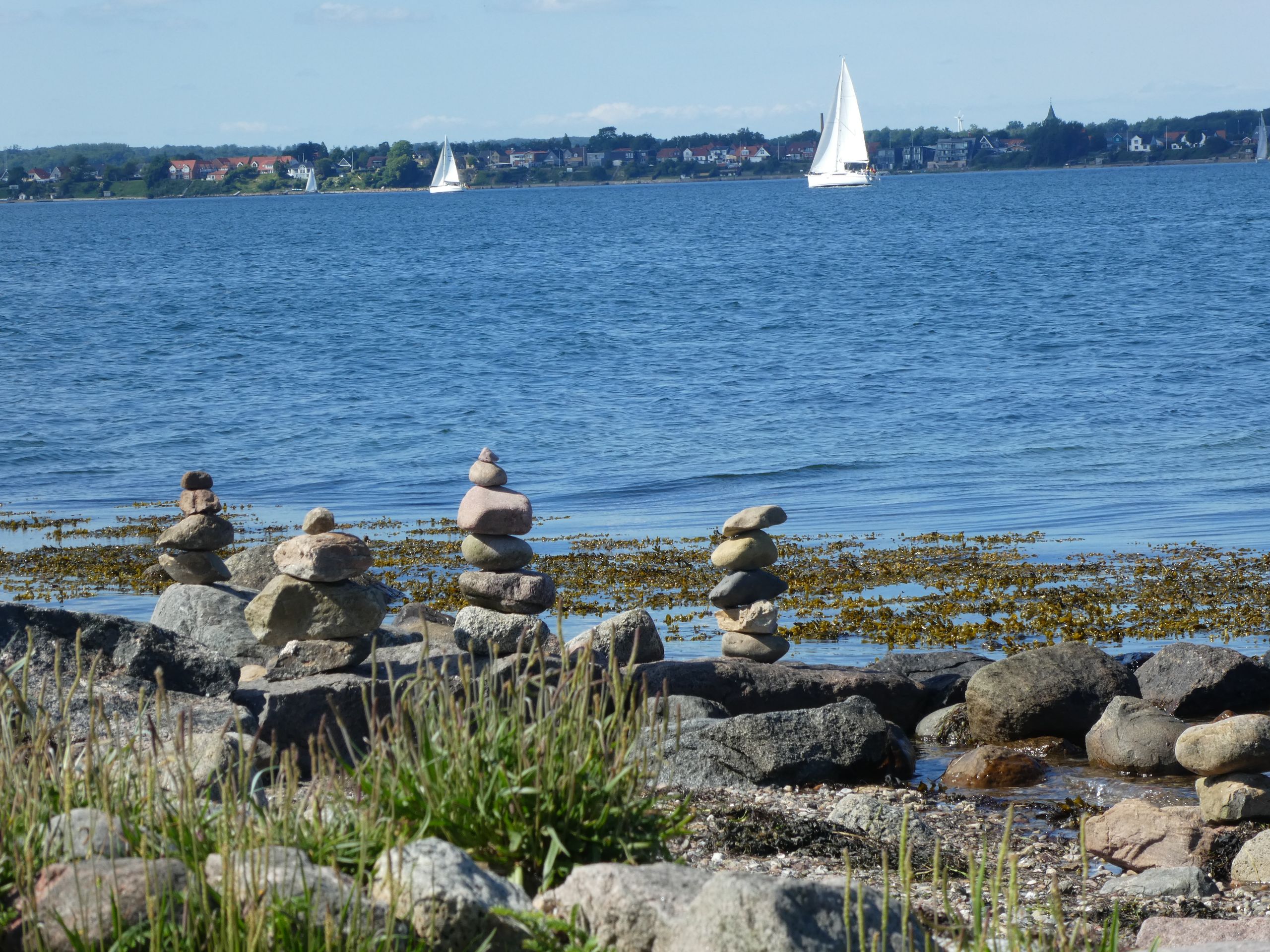
Finally, we arrived at 'Holnis Spitze' and thus stood at the northernmost point of Germany (at least on the mainland).
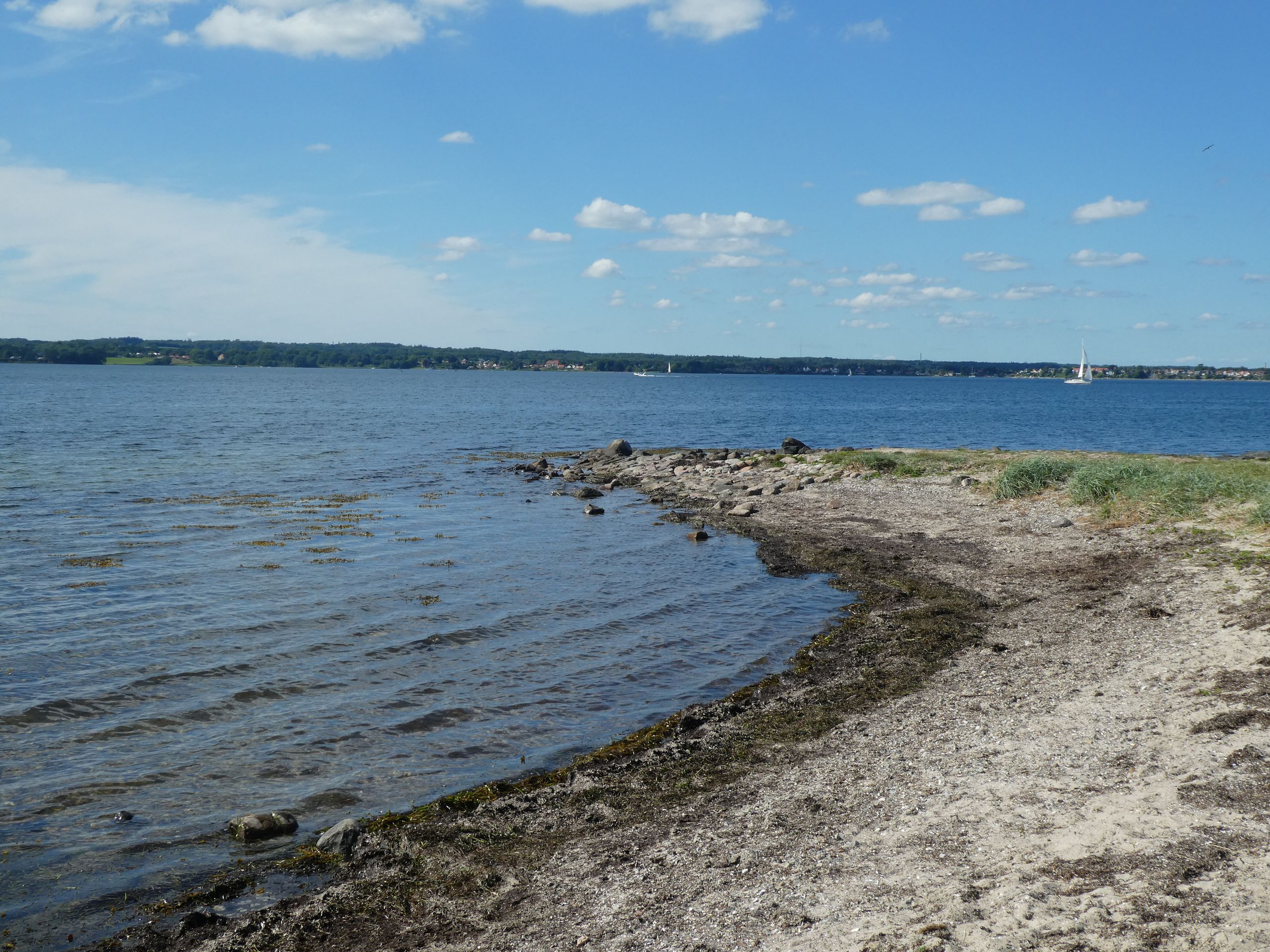
We sat down by the shore for a while to enjoy the view of sailboats, Denmark, and seagulls circling above us.
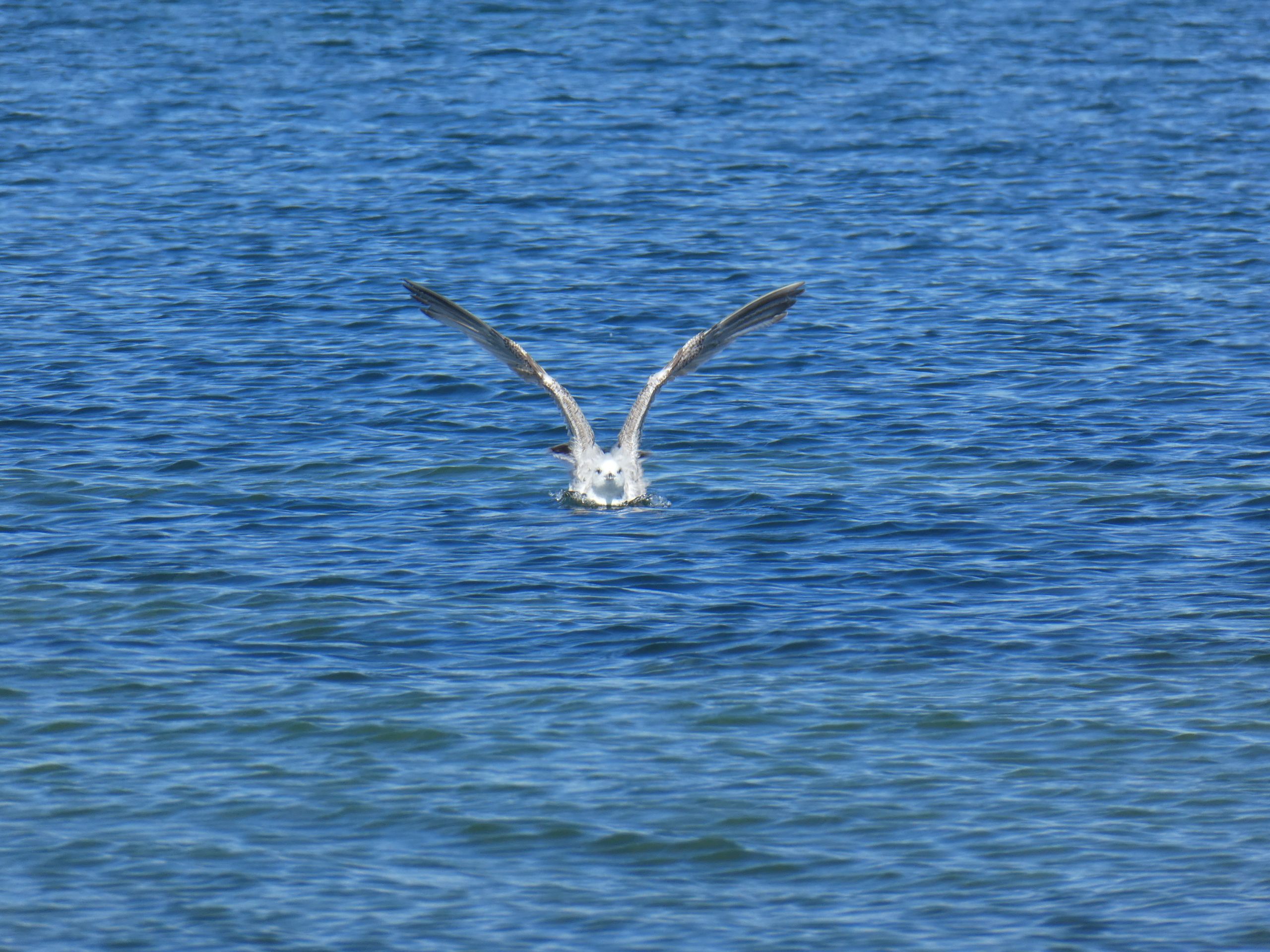
Then we continued our path along the shore, which now became a bit more rugged. The sandy shore became narrower, and some trees reached the water.

To reach the next opportunity to turn back, we had to climb over a few rocks on the shore, so we wouldn't get our feet wet.
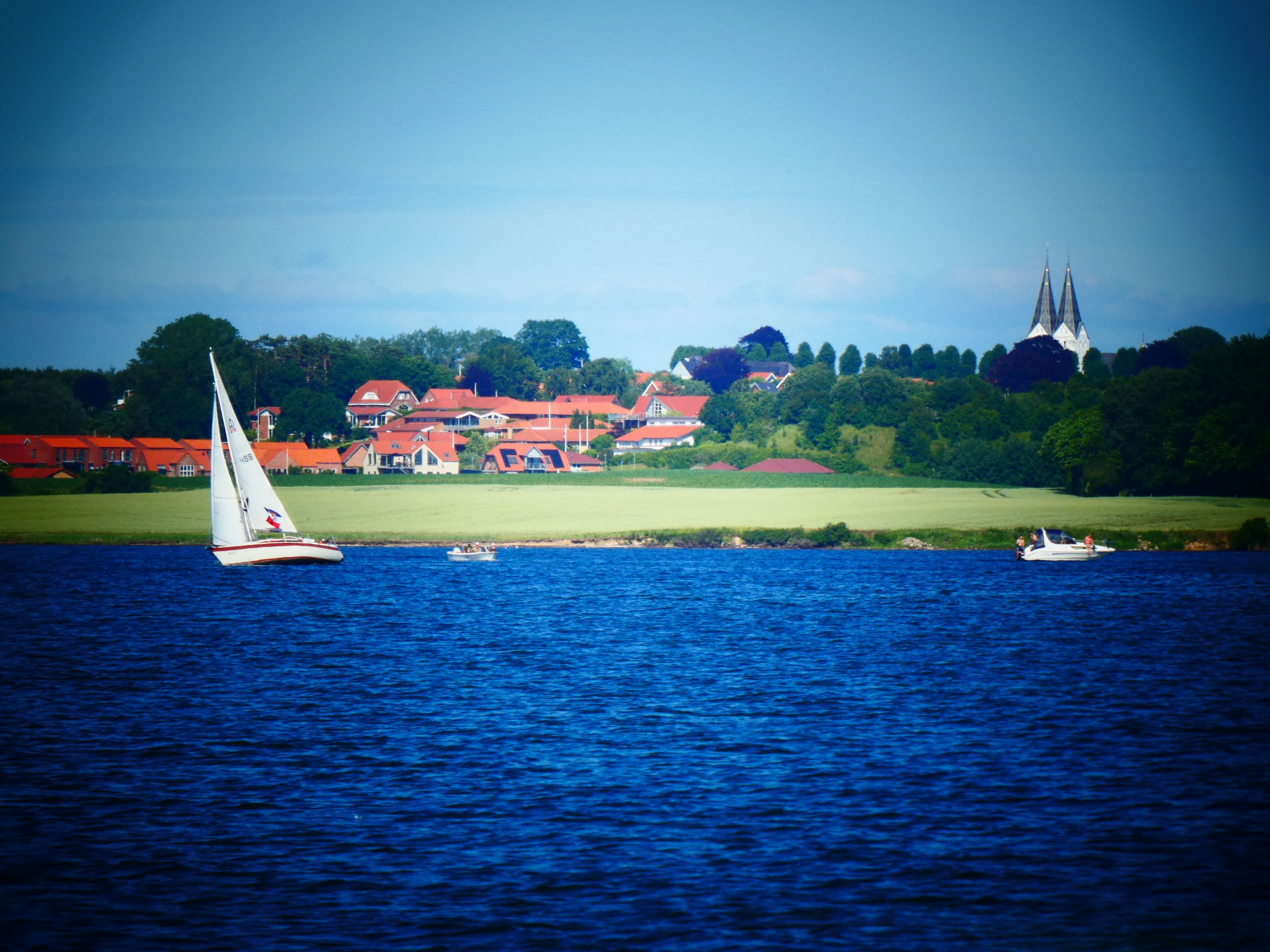
At the grave of the sailor Peter Thomsen, we then turned back towards the parking lot and Holnis Drei. He returned from the West Indies with his ship in 1850, but he was infected with cholera. Therefore, the ship was not allowed to dock in Flensburg. After he died on board, he was buried here in Holnis before the rest of the crew was allowed to continue the journey to Flensburg.
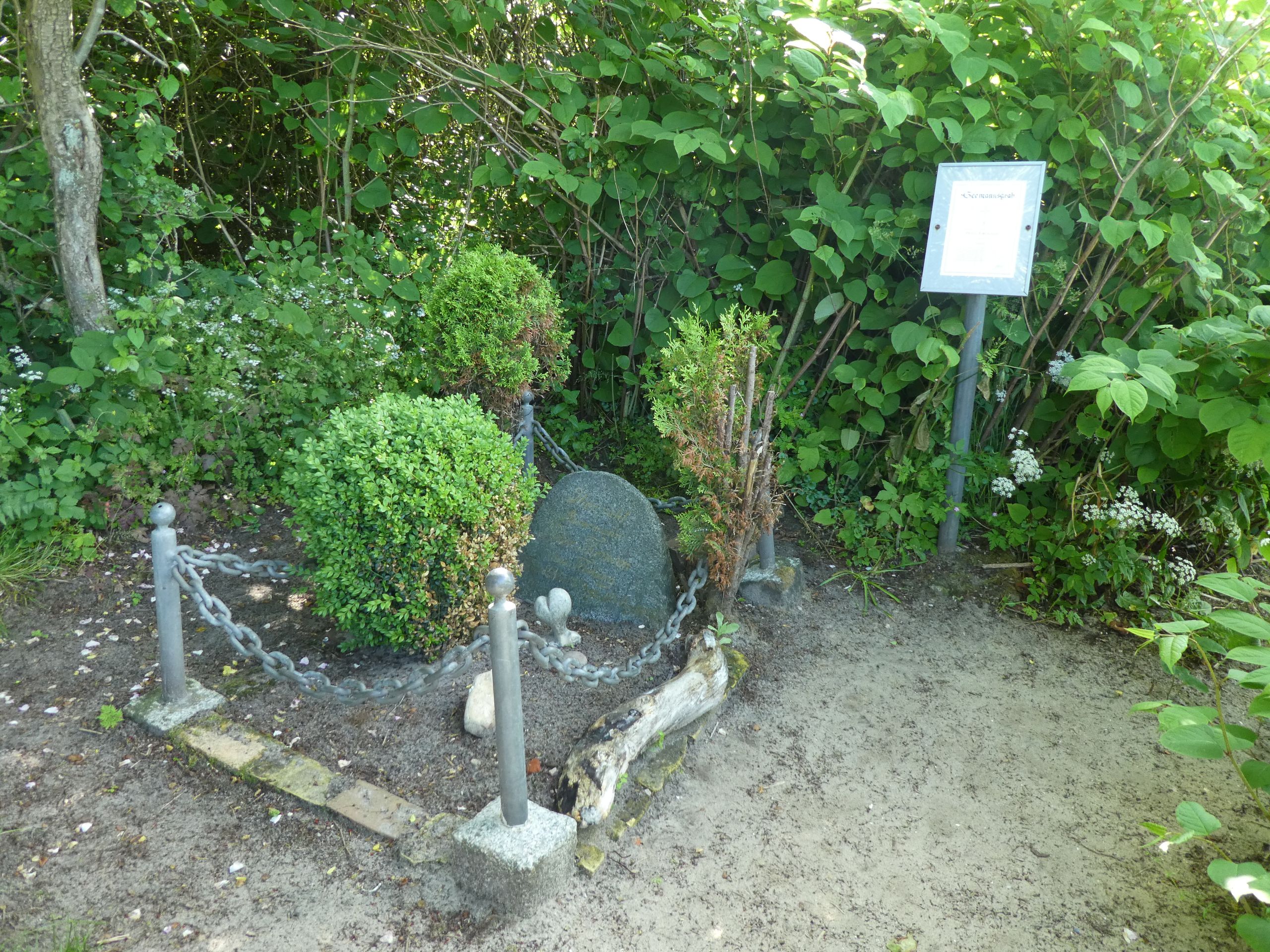
We walked through the nature reserve and back to Holnis Drei along the road, where our hike ended.
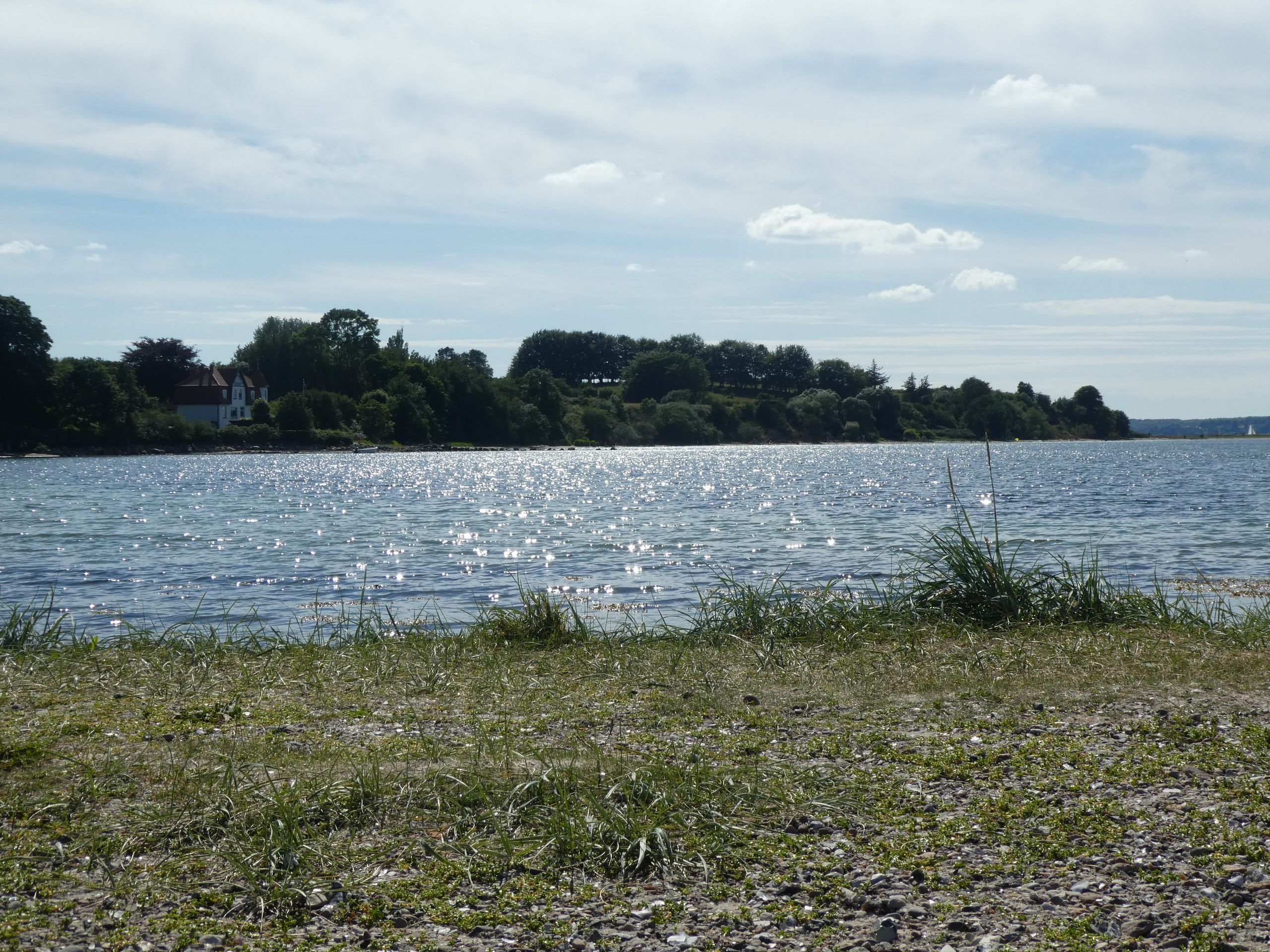
ނިއުސްލެޓަރ އަށް ސަބްސްކްރައިބް ކޮށްލައްވާ
ޖަވާބު
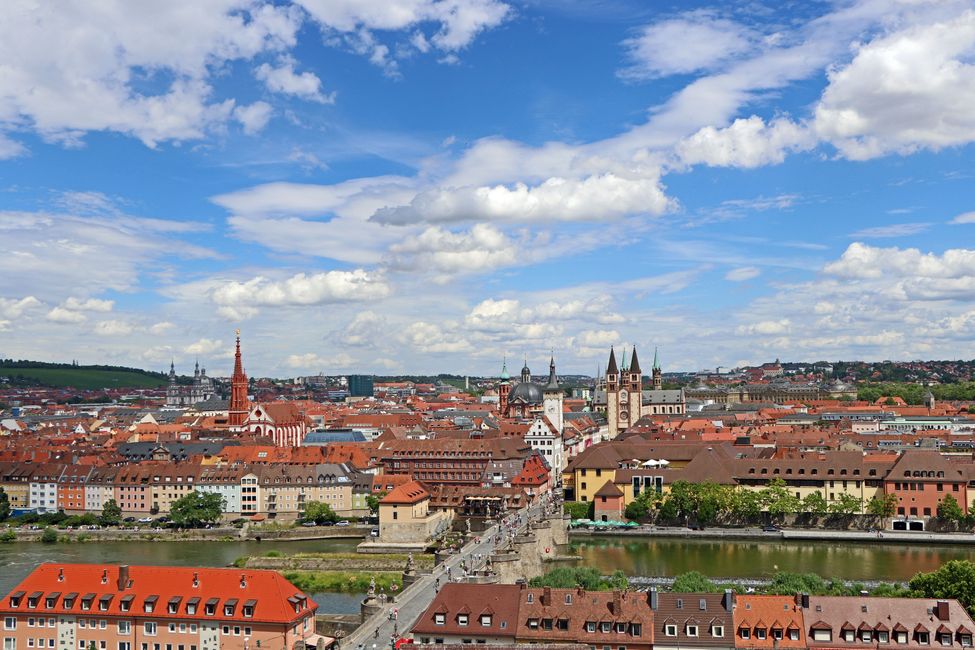
ދަތުރު ރިޕޯޓްތައް ޖަރުމަނުންނެވެ
